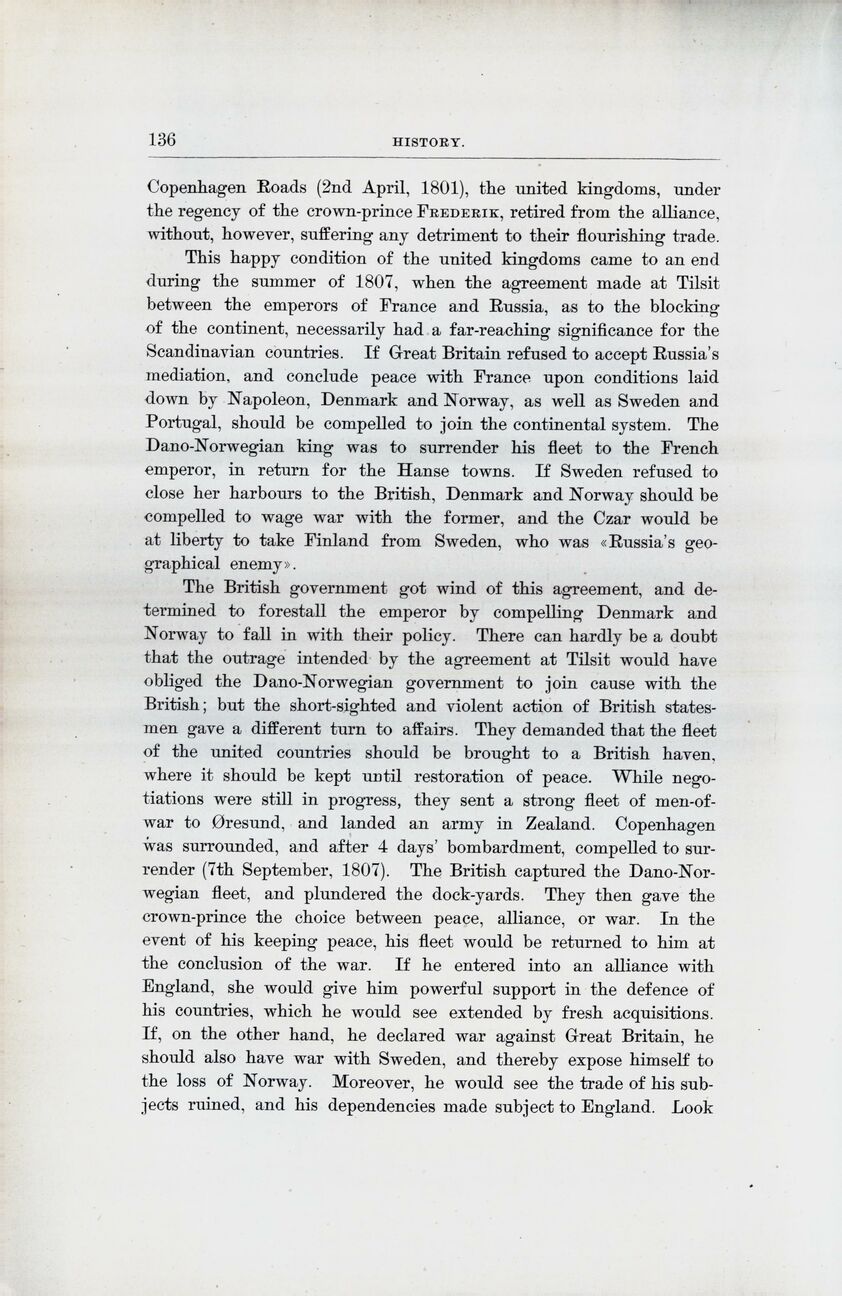
Full resolution (JPEG) - On this page / på denna sida - History, by O. A. Œverland

<< prev. page << föreg. sida << >> nästa sida >> next page >>
Below is the raw OCR text
from the above scanned image.
Do you see an error? Proofread the page now!
Här nedan syns maskintolkade texten från faksimilbilden ovan.
Ser du något fel? Korrekturläs sidan nu!
This page has been proofread at least once.
(diff)
(history)
Denna sida har korrekturlästs minst en gång.
(skillnad)
(historik)
Copenhagen Roads (2nd April, 1801), the united kingdoms, under
the regency of the crown-prince Frederik, retired from the alliance,
without, however, suffering any detriment to their flourishing trade.
This happy condition of the united kingdoms came to an end
during the summer of 1807. when the agreement made at Tilsit
between the emperors of France and Russia, as to the blocking
of the continent, necessarily had a far-reaching significance for the
Scandinavian countries. If Great Britain refused to accept Russia’s
mediation, and conclude peace with France upon conditions laid
down by Napoleon, Denmark and Norway, as well as Sweden and
Portugal, should be compelled to join the continental system. The
Dano-Norwegian king was to surrender his fleet to the French
emperor, in return for the Hanse towns. If Sweden refused to
close her harbours to the British, Denmark and Norway should be
compelled to wage war with the former, and the Czar would be
at liberty to take Finland from Sweden, who was «Russia’s
geographical enemy».
The British government got wind of this agreement, and
determined to forestall the emperor by compelling Denmark and
Norway to fall in with their policy. There can hardly be a doubt
that the outrage intended by the agreement at Tilsit would have
obliged the Dano-Norwegian government to join cause with the
British; but the short-sighted and violent action of British
statesmen gave a different turn to affairs. They demanded that the fleet
of the united countries should be brought to a British haven,
where it should be kept until restoration of peace. While
negotiations were still in progress, they sent a strong fleet of
men-of-war to Øresund, and landed an army in Zealand. Copenhagen
was surrounded, and after 4 days’ bombardment, compelled to
surrender (7th September, 1807). The British captured the
Dano-Norwegian fleet, and plundered the dock-yards. They then gave the
crown-prince the choice between peace, alliance, or war. In the
event of his keeping peace, his fleet would be returned to him at
the conclusion of the war. If he entered into an alliance with
England, she would give him powerful support in the defence of
his countries, which he would see extended by fresh acquisitions.
If, on the other hand, he declared war against Great Britain, he
should also have war with Sweden, and thereby expose himself to
the loss of Norway. Moreover, he would see the trade of his
subjects ruined, and his dependencies made subject to England. Look
<< prev. page << föreg. sida << >> nästa sida >> next page >>